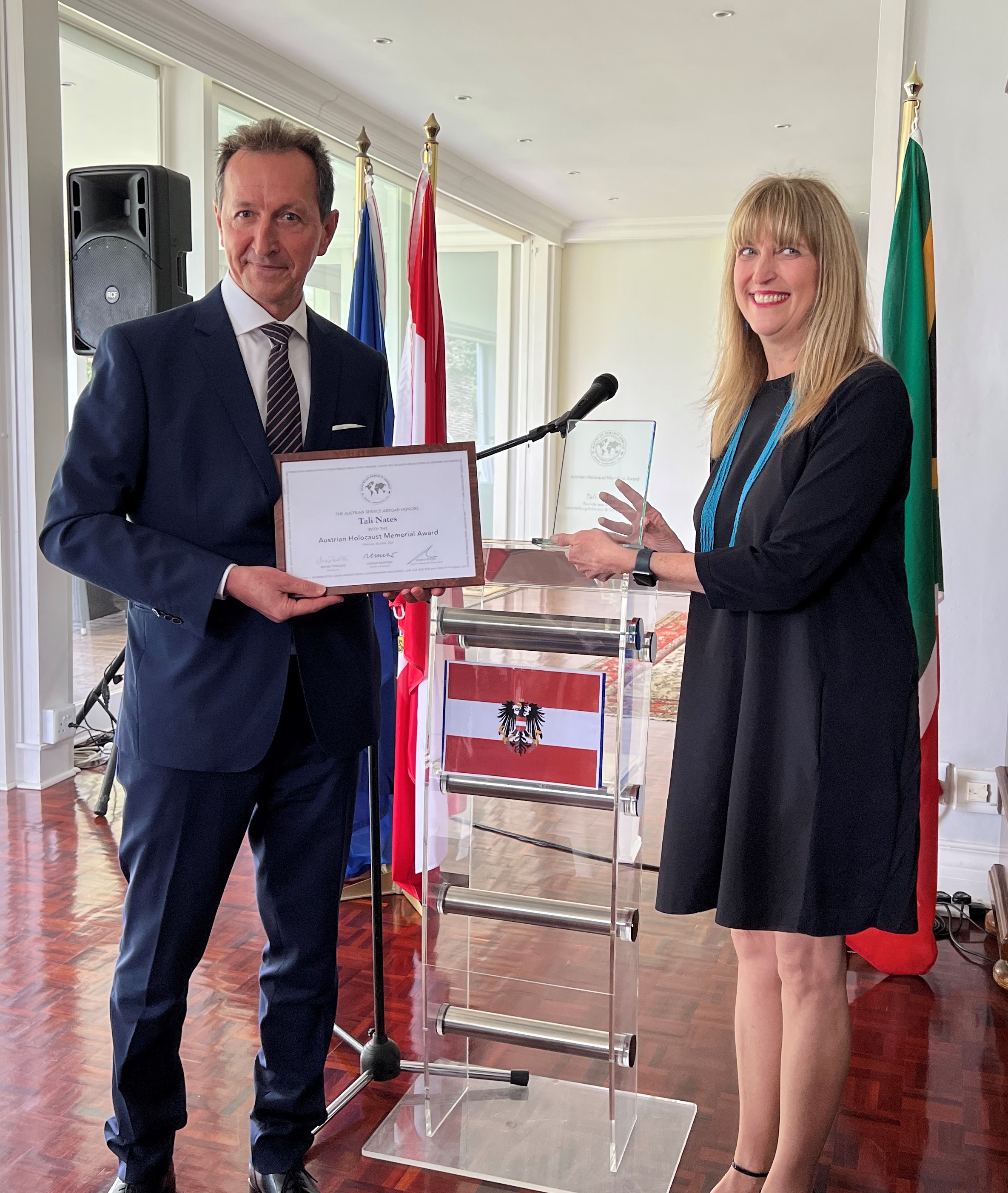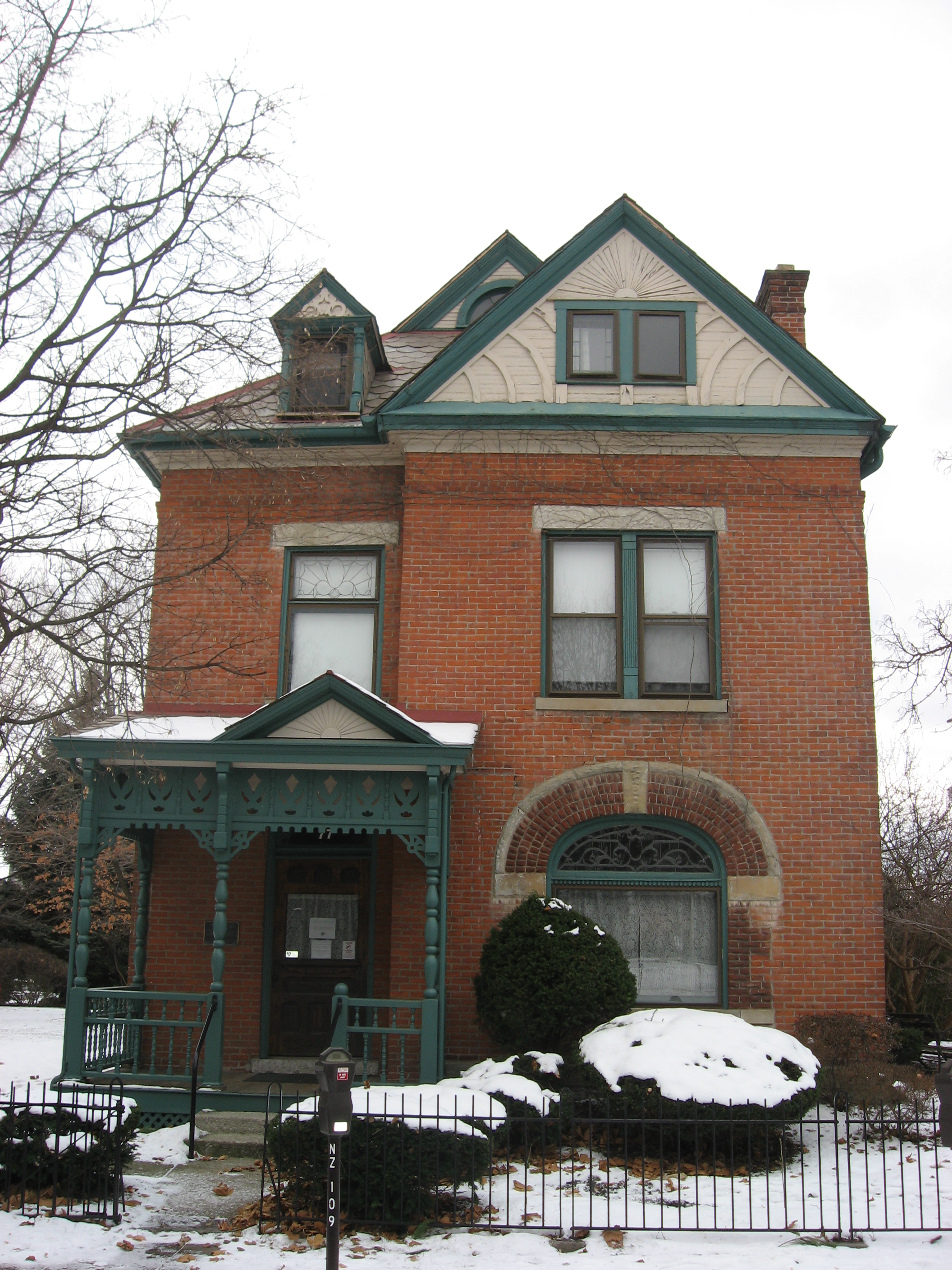|
Casa Stefan Zweig
The Casa Stefan Zweig is legally regarded as a private charitable organisation, which was founded in 2006 by a group of interested private donors, to establish a writer's house museum, that is dedicated to the author, in the last residence of Stefan Zweig and his wife in Petrópolis (Brazil). Background The house, in which Stefan Zweig and his second wife Lotte resided for 5 months until their joint suicide in February 1942 and where the author had revised his autobiography '' Die Welt von Gestern'' and drafted '' Schachnovelle'' and his essays about Montaigne, was bought by the association "Casa Stefan Zweig" and the architect Miguel Pinto Guimarães was commissioned with the renovation and the redesign of the house into a museum. The museum is dedicated to the author. He, like other artists, scholars, and scientists from Europe had fled to Brazil, due to the Nazi Party takeover in Germany. The museum will accommodate a library as well as a conference hall. Beside exhibitions ... [...More Info...] [...Related Items...] OR: [Wikipedia] [Google] [Baidu] |
Alberto Dines
Alberto Dines (February 19, 1932 – May 22, 2018) was a Brazilian journalist and writer. Biography With a career spanning over five decades, Dines directed and launched several magazines and newspapers in Brazil and Portugal. He has taught journalism since 1963, and was a visiting professor at the Columbia University School of Journalism in 1974. Dines was the editor in chief of ''Jornal do Brasil'' for twelve years, in addition to coordinating the Rio de Janeiro branch of ''Folha de S.Paulo''. He was also the director of Grupo Abril in Portugal, where he launched the ''Exame'' magazine. After years of dodging the military dictatorship censorship as the editor in chief of ''Jornal do Brazil'', Dines was fired in June 1974 for publishing an article criticizing the overtly amicable relationship between the owners of the newspaper and the state government of Rio de Janeiro. In addition to working as a journalist, Dines has written over 15 books, including ''Death in Paradise, t ... [...More Info...] [...Related Items...] OR: [Wikipedia] [Google] [Baidu] |
Museums In Rio De Janeiro (state)
A museum ( ; plural museums or, rarely, musea) is a building or institution that cares for and displays a collection of artifacts and other objects of artistic, cultural, historical, or scientific importance. Many public museums make these items available for public viewing through exhibits that may be permanent or temporary. The largest museums are located in major cities throughout the world, while thousands of local museums exist in smaller cities, towns, and rural areas. Museums have varying aims, ranging from the conservation and documentation of their collection, serving researchers and specialists, to catering to the general public. The goal of serving researchers is not only scientific, but intended to serve the general public. There are many types of museums, including art museums, natural history museums, science museums, war museums, and children's museums. According to the International Council of Museums (ICOM), there are more than 55,000 museums in 202 countries ... [...More Info...] [...Related Items...] OR: [Wikipedia] [Google] [Baidu] |
Literary Museums In Brazil
Literature is any collection of written work, but it is also used more narrowly for writings specifically considered to be an art form, especially prose fiction, drama, and poetry. In recent centuries, the definition has expanded to include oral literature, much of which has been transcribed. Literature is a method of recording, preserving, and transmitting knowledge and entertainment, and can also have a social, psychological, spiritual, or political role. Literature, as an art form, can also include works in various non-fiction genres, such as biography, diaries, memoir, letters, and the essay. Within its broad definition, literature includes non-fictional books, articles or other printed information on a particular subject.''OED'' Etymologically, the term derives from Latin ''literatura/litteratura'' "learning, a writing, grammar," originally "writing formed with letters," from ''litera/littera'' "letter". In spite of this, the term has also been applied to spoken or sun ... [...More Info...] [...Related Items...] OR: [Wikipedia] [Google] [Baidu] |
Houses In Brazil
A house is a single-unit residential building. It may range in complexity from a rudimentary hut to a complex structure of wood, masonry, concrete or other material, outfitted with plumbing, electrical, and heating, ventilation, and air conditioning systems.Schoenauer, Norbert (2000). ''6,000 Years of Housing'' (rev. ed.) (New York: W.W. Norton & Company). Houses use a range of different roofing systems to keep precipitation such as rain from getting into the dwelling space. Houses may have doors or locks to secure the dwelling space and protect its inhabitants and contents from burglars or other trespassers. Most conventional modern houses in Western cultures will contain one or more bedrooms and bathrooms, a kitchen or cooking area, and a living room. A house may have a separate dining room, or the eating area may be integrated into another room. Some large houses in North America have a recreation room. In traditional agriculture-oriented societies, domestic animals such as c ... [...More Info...] [...Related Items...] OR: [Wikipedia] [Google] [Baidu] |
Austrian Holocaust Memorial Service
Gedenkdienst is the concept of facing and taking responsibility for the darkest chapters of one's own country's history while ideally being financially supported by one's own country's government to do so. Founded in Austria in 1992 by Andreas Maislinger the Gedenkdienst is an alternative to Austria's compulsory national military service as well as a volunteering platform for Austrians to work in Holocaust- and Jewish culture-related institutions around the world with governmental financial support. In Austria it is also referred to as Austrian Holocaust Memorial Service provided by the Austrian Service Abroad. The Austrian Gedenkdienst serves the remembrance of the crimes of Nazism, commemorates its victims and supports Jewish cultural future. The program is rooted in the acknoledgment of responsibility by the Austrian government for the crimes committed by National Socialism. Concept Gedenkdienst is the concept of facing and taking responsibility for the darkest chapters of ... [...More Info...] [...Related Items...] OR: [Wikipedia] [Google] [Baidu] |
Austrian Service Abroad
The Austrian Service Abroad is a non-profit organization founded by Andreas Hörtnagl, Andreas Maislinger and Michael Prochazka in 1998, which sends young Austrians to work in partner institutions worldwide serving Holocaust commemoration in form of the Gedenkdienst, supporting vulnerable social groups and sustainability initiatives in form of the Austrian Social Service and realizing projects of peace within the framework of the Austrian Peace Service. Its services aim at the permanence of life on earth. The Austrian Service Abroad carries and promotes the idea of the House of Responsibility for the birthplace of Adolf Hitler in Braunau am Inn. The Austrian Service Abroad is the issuer of the annually conferred Austrian Holocaust Memorial Award. The program is funded by the Austrian government. Origin The Austrian Service Abroad has its origin in the acknowledgement of the Austrian government, in particular by chancellor Franz Vranitzky in 1991, regarding the Austrian peopl ... [...More Info...] [...Related Items...] OR: [Wikipedia] [Google] [Baidu] |
Austrian Holocaust Memorial Award
The Austrian Holocaust Memorial Award (AHMA) was founded by the Austrian Service Abroad in 2006. Meaning The prize is annually conferred to a person, a group of individuals or an institution, which has shown special endeavors for the memory of the Shoah and / or made special contributions to Jewish life. Background Since 1992 Austria has annually sent young Austrians abroad to serve in form of Gedenkdiener in many places around the world remembering the crimes of Nazism, commemorating its victims and contributing to Jewish life. Example partner institutions are the Auschwitz Jewish Center in Poland, Yad Vashem in Israel, the Simon Wiesenthal Centre in the United States, the Jewish Museum Berlin in Germany, the Jewish Holocaust Centre in Australia, the Russian Research and Educational Holocaust Center in Russia and the Center of Jewish Studies Shanghai in China. The Gedenkdienst service is rooted in the acknowledgment of responsibility by the Republic of Austria for the c ... [...More Info...] [...Related Items...] OR: [Wikipedia] [Google] [Baidu] |
President (corporate Title)
A president is a leader of an organization, company, community, club, trade union, university or other group. The relationship between a president and a chief executive officer varies, depending on the structure of the specific organization. In a similar vein to a chief operating officer, the title of corporate president as a separate position (as opposed to being combined with a "C-suite" designation, such as "president and chief executive officer" or "president and chief operating officer") is also loosely defined; the president is usually the legally recognized highest rank of corporate officer, ranking above the various vice presidents (including senior vice president and executive vice president), but on its own generally considered subordinate, in practice, to the CEO. The powers of a president vary widely across organizations and such powers come from specific authorization in the bylaws like ''Robert's Rules of Order'' (e.g. the president can make an "executive decision" on ... [...More Info...] [...Related Items...] OR: [Wikipedia] [Google] [Baidu] |
Writer's House Museum
Writers' homes (sometimes writer's, author's or literary houses) are locations where writers lived. Frequently, these homes are preserved as historic house museums and literary tourism destinations, called writer's home museums, especially when the homes are those of famous literary figures. Frequently these buildings are preserved to communicate to visitors more about the author than their work and its historical context. These exhibits are a form of biographical criticism. Visitors of the sites who are participating in literary tourism, are often fans of the authors, and these fans find deep emotional and physical connections to the authors through their visits. Sites include a range of activities common to cultural heritage sites, such as living history, museum exhibits, guided tours and poetry readings. ''New York Times'' commentator Anne Trubek counted 73 such houses in the United States. The tradition of preserving houses or sites important to famous authors has a long hi ... [...More Info...] [...Related Items...] OR: [Wikipedia] [Google] [Baidu] |
Nazi Party
The Nazi Party, officially the National Socialist German Workers' Party (german: Nationalsozialistische Deutsche Arbeiterpartei or NSDAP), was a far-right politics, far-right political party in Germany active between 1920 and 1945 that created and supported the ideology of Nazism. Its precursor, the German Workers' Party (; DAP), existed from 1919 to 1920. The Nazi Party emerged from the Extremism, extremist German nationalism, German nationalist, racism, racist and populism, populist paramilitary culture, which fought against the communism, communist uprisings in post–World War I Germany. The party was created to draw workers away from communism and into nationalism. Initially, Nazi political strategy focused on anti–big business, anti-bourgeoisie, bourgeois, and anti-capitalism, anti-capitalist rhetoric. This was later downplayed to gain the support of business leaders, and in the 1930s, the party's main focus shifted to Antisemitism, antisemitic and Criticism of ... [...More Info...] [...Related Items...] OR: [Wikipedia] [Google] [Baidu] |
Montaigne
Michel Eyquem, Sieur de Montaigne ( ; ; 28 February 1533 – 13 September 1592), also known as the Lord of Montaigne, was one of the most significant philosophers of the French Renaissance. He is known for popularizing the essay as a literary genre. His work is noted for its merging of casual anecdotes and autobiography with intellectual insight. Montaigne had a direct influence on numerous Western writers; his massive volume ''Essais'' contains some of the most influential essays ever written. During his lifetime, Montaigne was admired more as a statesman than as an author. The tendency in his essays to digress into anecdotes and personal ruminations was seen as detrimental to proper style rather than as an innovation, and his declaration that "I am myself the matter of my book" was viewed by his contemporaries as self-indulgent. In time, however, Montaigne came to be recognized as embodying, perhaps better than any other author of his time, the spirit of freely entertain ... [...More Info...] [...Related Items...] OR: [Wikipedia] [Google] [Baidu] |


.jpg)



